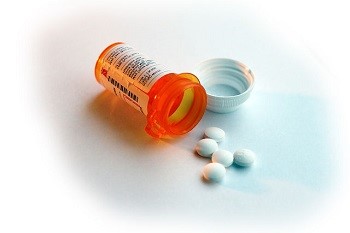The Houston based mobile ad platform will target the ride share program’s customers.
Gnomad took the opportunity to use the South By Southwest (SXSW) festival in order to launch its mobile advertising platform which will make it possible to display ads to passengers sitting in the back seats of dozens of Uber vehicles around the Austin, Texas area.
The Gnomad mobile app was developed by a company called Poetic Systems, Inc., out of Houston.
The way it works is that it displays mobile advertising and content, among other features, that are geared toward travelers who are visiting from elsewhere and who are seeking to find out more about what there is to do within the area, particularly throughout the duration of the festival. So far, the mobile marketing content in the app is featuring the Greater Houston Partnership, which is a SnapStream based in Houston. It has also placed the spotlight on the Capital Factory co-working space and an assortment of startups in Austin.
Mobile advertising content was also assembled for Gnomad along with the Tasting Table culinary website.
 That site is based in New York under Rich Winley, the co-founder and CEO. Ahead of the SXSW, he explained that “We’re expecting to be in about 75 Uber cars,” and that “We’re expecting 20,000 people to see the GHP ad over the weekend.”
That site is based in New York under Rich Winley, the co-founder and CEO. Ahead of the SXSW, he explained that “We’re expecting to be in about 75 Uber cars,” and that “We’re expecting 20,000 people to see the GHP ad over the weekend.”
That said, despite this mobile marketing agreement, Gnomad is not considered to be an official partner with Uber as each driver with the rideshare program is considered to be an independent contractor. This has given them the opportunity to create individual partnerships with Gnomad if they wish to do so. Those drivers, who are currently facing fare cuts, are frequently seeking additional opportunities to generate an income. By working with Gnomad, Winley explained that they can take part in a revenue sharing model.
Over the long term, Gnomad will continue these types of mobile advertising opportunities and intends to take its ad tech to New York throughout Fashion Week. For that event, it has partnered with a handful of ad agencies in New York, which had not been identified by the time of the writing of this article.
The two companies will advertise to people who order drug refills and who visit their doctors.
Smartphone advertising firm, 4Info, has just joined up with Crossix, a pharmaceutical data company, in order to test mobile ads within the market of patients who have either visited their doctors or have ordered refills of their prescription medications.
The goal of this partnership is to determine the level of influence mobile advertising can have in this space.
The new partnership will work to measure the level of influence of mobile ads when they are delivered to people who are visiting a medical specialist or having a prescription filled. The new strategic relationship between the two companies is being made to gauge the potential of mobile devices when carefully targeting consumers within the space of the highly regulated health care industry. This has been among the goals of 4Info for some time, as it has been seeking a strategic partner for stepping into the pharmaceuticals market.
The key is to make sure there is an appropriate balance between the timing and industry regulations for the mobile ads.
 According to Tim Jenkins, the CEO of 4Info, “Pharma is a huge opportunity.” Before his company partnered up with Crossix in this effort, it had previously been working with advertisers in the pharmaceutical industry in the area of targeting advertisements for non-prescription medications, through the data available via loyalty card programs.
According to Tim Jenkins, the CEO of 4Info, “Pharma is a huge opportunity.” Before his company partnered up with Crossix in this effort, it had previously been working with advertisers in the pharmaceutical industry in the area of targeting advertisements for non-prescription medications, through the data available via loyalty card programs.
To be clear, no medical data is used by Crossix in order to identify a specific disease or condition that an individual is treating. This will not be the nature of the mobile advertising strategy pursued by the two companies in the partnership. Instead, it obtains information from healthcare data distributors as well as individual businesses. With an analysis of that data, it determines the likelihood of a specific individual for a certain health affliction based on the non-prescription drug purchases that person has made along with the use of a loyalty card, information from prescription refills through retail pharmacies, or medical claims data that suggests a doctor has been seen.
The outcome is that, by way of data models, the companies will be able to make certain educated hypotheses as to what type of conditions each consumer could potentially have. Beyond that, 4Info tracks mobile device locations when certain apps are opened in order to determine whether or not the user is at home. When a location has been decided to be a user’s home location, targeted mobile apps based on the assumptions about that individual will be issued.
 That site is based in New York under Rich Winley, the co-founder and CEO. Ahead of the SXSW, he explained that “We’re expecting to be in about 75 Uber cars,” and that “We’re expecting 20,000 people to see the GHP ad over the weekend.”
That site is based in New York under Rich Winley, the co-founder and CEO. Ahead of the SXSW, he explained that “We’re expecting to be in about 75 Uber cars,” and that “We’re expecting 20,000 people to see the GHP ad over the weekend.”
 According to Tim Jenkins, the CEO of 4Info, “Pharma is a huge opportunity.” Before his company partnered up with Crossix in this effort, it had previously been working with advertisers in the pharmaceutical industry in the area of targeting advertisements for non-prescription medications, through the data available via loyalty card programs.
According to Tim Jenkins, the CEO of 4Info, “Pharma is a huge opportunity.” Before his company partnered up with Crossix in this effort, it had previously been working with advertisers in the pharmaceutical industry in the area of targeting advertisements for non-prescription medications, through the data available via loyalty card programs.